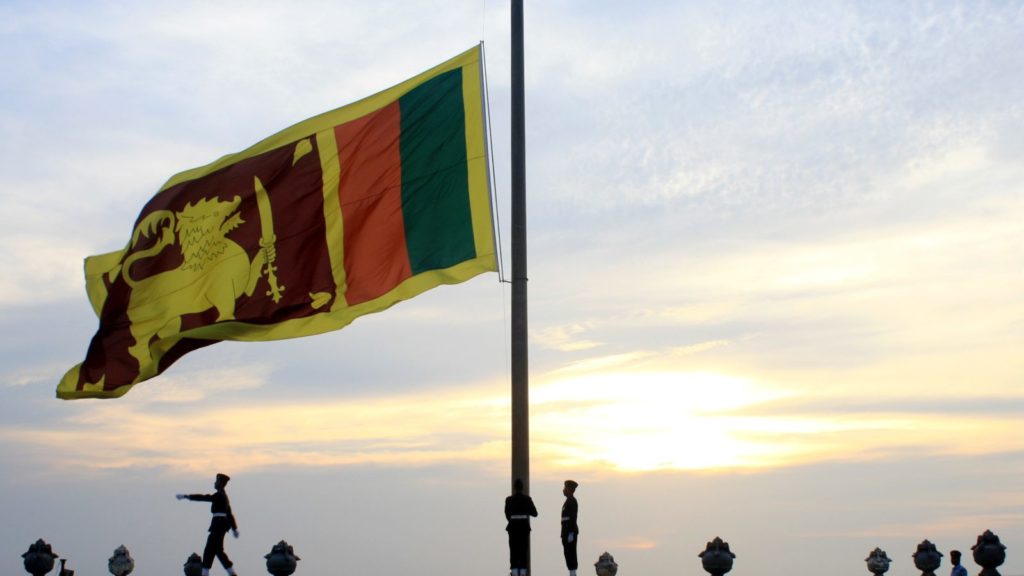Photo courtesy South Asian Voices
The last year of this decade, 2019 is possibly a turning point in Sri Lankan history. When looking back on the year that passed, what looms above all else is Easter Sunday. A series of explosions that killed over 200 people was the start of a longer series of discriminatory acts, fear-mongering and oppression. On the tail of the terrorist attacks were terror-inducing attacks of a different kind, against Muslims, against minorities, and against refugees. Faced with a fear the likes of which the country had not had to encounter since 2009, ethno-nationalist ideology took a firmer ground, with Gotabaya Rajapaksa announcing his Presidential candidacy to “tackle the threat of radical Islam”. Almost on the 6 month mark of East Sunday attacks, the Parliamentary Select Committee (PSC) released their report on the attack. The report insinuated the involvement of the Deep State in the attacks, a critical factor with a Presidential election scheduled towards the end of the year.
As a consequence of the Easter Sunday attacks, Sri Lankan identity became a fundamental issue, with ethnicity and religion playing a major role in its determination. Religious freedom and national security were posed as entities on opposite ends of the spectrum, with the public taking it unto themselves to ensure national security. Many debates arose around the banning of the niqab, linking it to the Sri Lankan identity. Although there were voices highlighting the importance of sensitivity and solidarity in these difficult times, with pockets of violence erupting across the nation and propelled by an uprising of ethnonationalist sentiments that othered anyone not Sinhala, the popular movement demanded a national figure to safeguard the country. Thus, amidst warnings, analysis, and pleas, Gotabaya Rajapaksa was elected the eighth President of Sri Lanka.
In addition to these landmark turning points, the socio-political struggles of the people continued as it has for the past few years. The Muslim Marriage and Divorce Act (MMDA) was a highlight during the year, having made significant breakthroughs in its amendment process.
Amidst the ethnic tensions in the aftermath of 4/21, the country commemorated a year since Digana. Although we vowed to have learnt our lessons from Digana attacks, the one year anniversary was marked in the midst of equally fraught atmosphere, on another ethnonationalist high. 2019 also marked a decade since the end of the war. The anniversary occurring barely a month after the Easter Sunday attacks, it was evident that only the physical war had ended; emotional and psychological warfare seem rampant, and “reconciliation” a tired word.
While the importance of social media in attitude creation and shaping was clear during the Presidential Election campaign, a preceding campaign was equally important in terms of social media, attitude changes, and party politics. “Save Wilpattu” was an important point in the lead up to the larger national extremist narrative.
With the future – especially in terms of human rights – unclear, one hopes that dissenters including media and human rights activists will not experience the same oppression they faced when a Rajapaksa last held office. Nonetheless, Groundviews will continue to record, archive, and be a platform for both content and conversations difficult to be had within the mainstream media.
This is a pick of five articles from our archives for the year 2019:
- Speaking Malay in Kompannaveediya – Documents the inherent relationship between language and identity, and the struggle of one community to keep their mother language alive
- Memory and the Security State – On remembering the loved ones and Tamil civilians killed during the war that ended on the 18th May 2009
- Justice denied for Trinco 5 – A note on the failure to deliver justice to the 5 students killed in Trincomalee in 2005
- The Return – On the return of a Rajapaksa ruler, and what it may mean to Sri Lanka
- A Great Tree Has Fallen: Father Harry Miller S.J. Passes On – A note on a great humanitarian, with words of hope for difficult times: ‘They existed. They existed. We can be. Be and be better. For they existed’.
